Play By Play: How Leinster Came Back Against Connacht
Play By Play: How Leinster Came Back Against Connacht
How Leinster Came Back Against Connacht

With 15 minutes left in a Round 11 Guinness PRO14 clash, Connacht led Leinster 29-12 … and ended up losing.
How did that happen? Glad you asked.
One Little Knock-On
Ahead by 17, Connacht almost made it a bigger lead when Bundee Aki poached a ball in a sloppy Leinster ruck and was off untouched. But … as you can see, Aki didn’t do it cleanly.
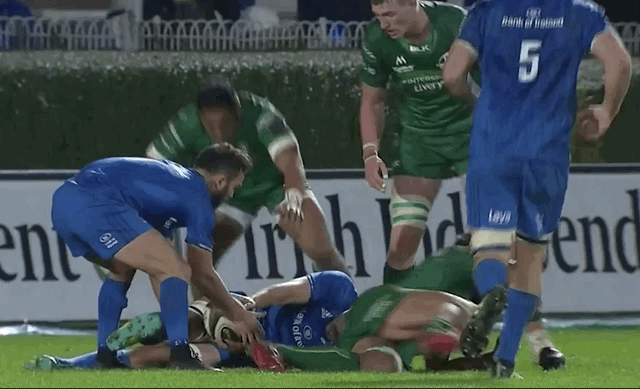
Had he perhaps driven Jamison Gibson-Park off the ball first he might have been OK (although he risked a penalty for interfering with the halfback).
Unnecessary Scrum Penalty
Regardless, Leinster gets a scrum, then a free kick, and, from another scrum, this happened.
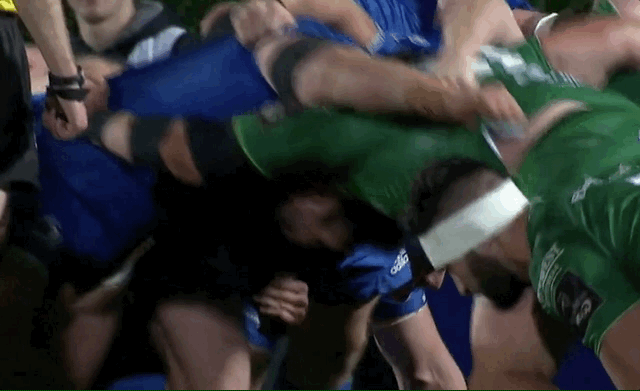
There’s really no reason for Peter McCabe (Connacht prop in green) to do this. If he wants to make a statement by twisting a scrum to the ground, this isn’t the time to do it. Leinster gets a penalty, and sets up a lineout, from which they score.
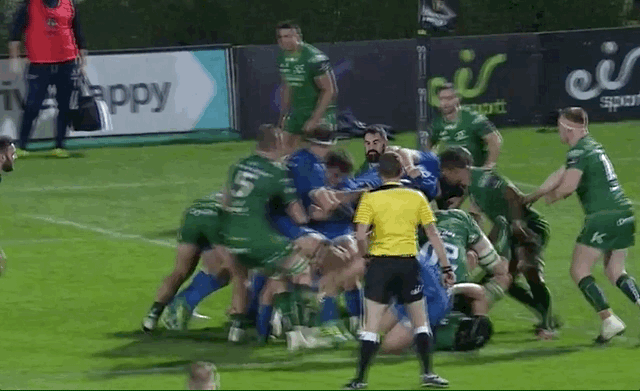
You Call That A Maul Defense?
Now, you might criticize Connacht for being lazy in their maul defense, and you’d be somewhat correct. The Connacht forwards are way too content to stand off and let someone else do the work.
But, two other things to look at:
#1. Lock Gavin Thornbury is of a mind to sack the lineout. But he can only do that if no other Connacht players engage Leinster - basically, if you’re alone, you are tackling someone. If you’re part of a group, you’re collapsing a maul. Thornbury is thinking sack, while his teammates drive in. Thornbury, who is resisted anyway, has to give up and just drive.
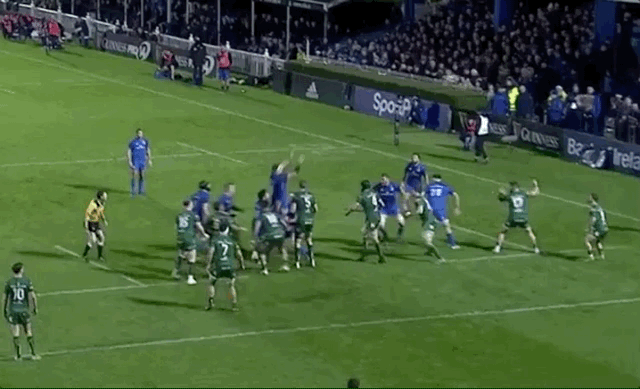
#2. Connacht’s maul defense isn’t great, but then Eoghan Masterson drives in and, instead of helping, he comes in at an angle and takes out the Connacht resistance. As a result, Leinster is almost unimpeded to the tryline.
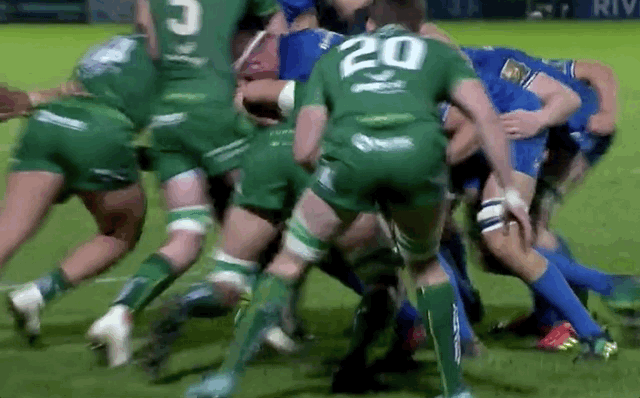
Defense Slow To React
Right after, Leinster scores an excellent try. Have a look in two parts:
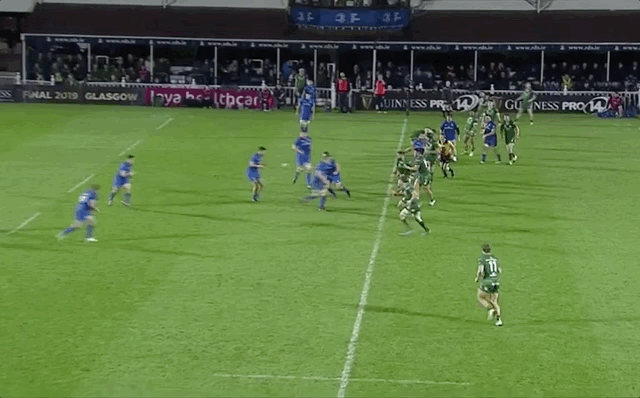
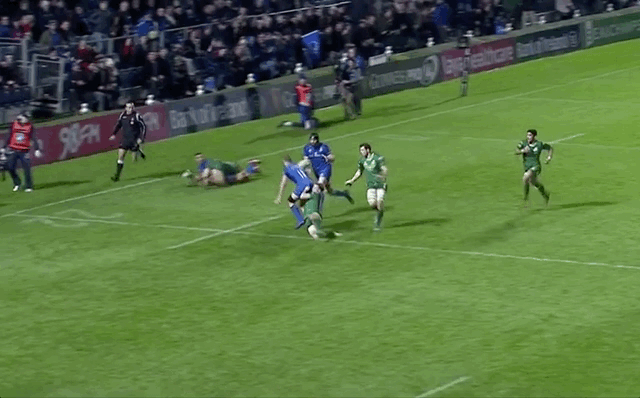
Yeah, OK, very nice offloading out of contact. But this is about work rate. Dan Leavy is among these players when the Leinster attack begins. Where do the rest of these guys go? They are just too slow. Leavy gets on his horse to get the pass to set him up for the score. No Connacht players follow him.
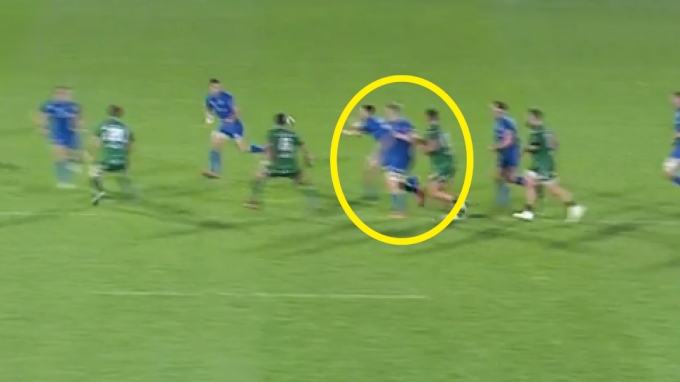
This is because they still think they’ve got a big lead. They’re wrong.
Failure To Run Out The Clock
And then we come to the idea of when you should push the boundaries and when you should be cautious. Connacht gets points for wanting to extend its lead, but with less than four minutes to go and hanging onto a three-point lead, maybe it's time to avoid long passes that could be intercepted, or could put a winger in an isolated position.
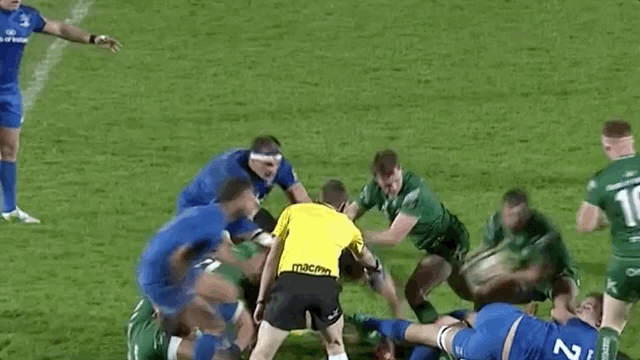
This is an ill-advised pass, leads to a turnover, and ultimately Leinster's game-winning try.
Running Out The Clock To Score The Winner
Leinster scores two minutes past full time and after 41 … 41! … phases. That’s a lot of phases. It’s a testament to Connacht not committing a penalty, and also to Leinster’s patience.
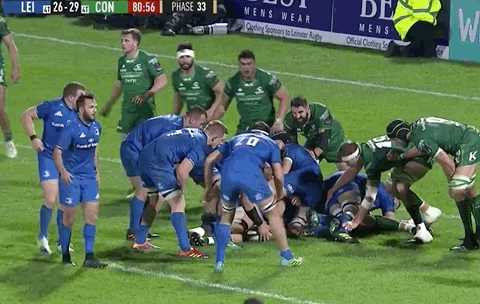
When you win on your next score, and time is up or almost up, remember, you’re not out of time - you have all the time in the world. The deadline is irrelevant. Too often you’ll see teams rush when time is up or almost up, but that’s when you should be methodical, patient, and careful. Leinster was all of these.
Connacht, though, helped.
Even A Small Hole Can Be Big Enough
Right at the end, Connacht has been defending its line fairly well. And right before the try is scored they look in good shape, even with flyhalf Jack Carty close to the ruck.
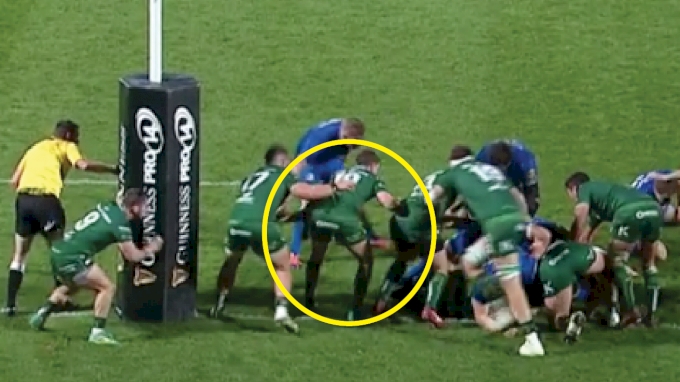
But someone tells Carty to move out wide. OK, you could argue that a flyhalf isn’t the guy to defend in close. But no one replaces him. And with the goal post shielding scrumhalf Caolin Blade, there’s a tiny little hole.
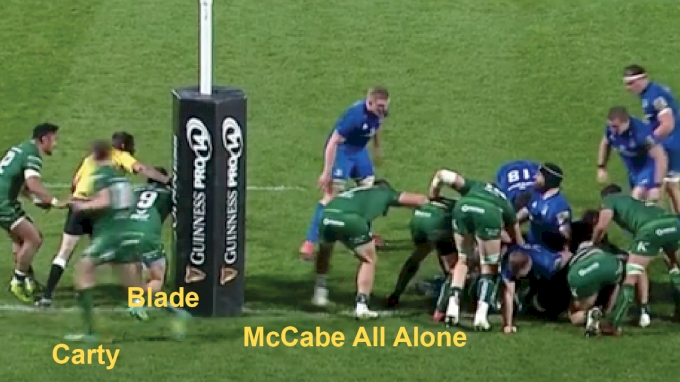
Large enough that when McCabe makes the tackle, there’s no one to help him. The Leinster forwards put weight behind Andrew Porter and get the winning try.
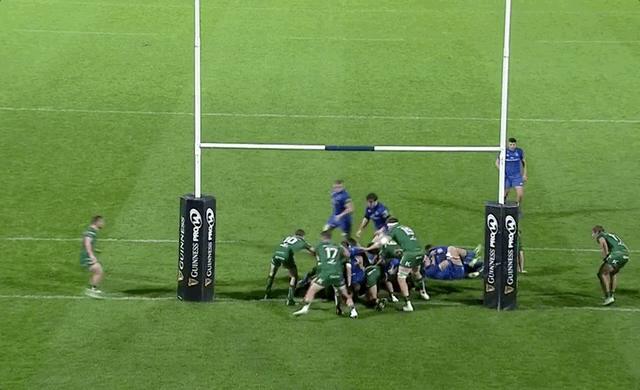
The lessons are about being patient even when you’re down, and even when the clock is running out. But it’s also about choosing your moments to extend a lead, and communicating on defense. It was those little errors in communication, especially on that maul and at the end, that killed Connacht.